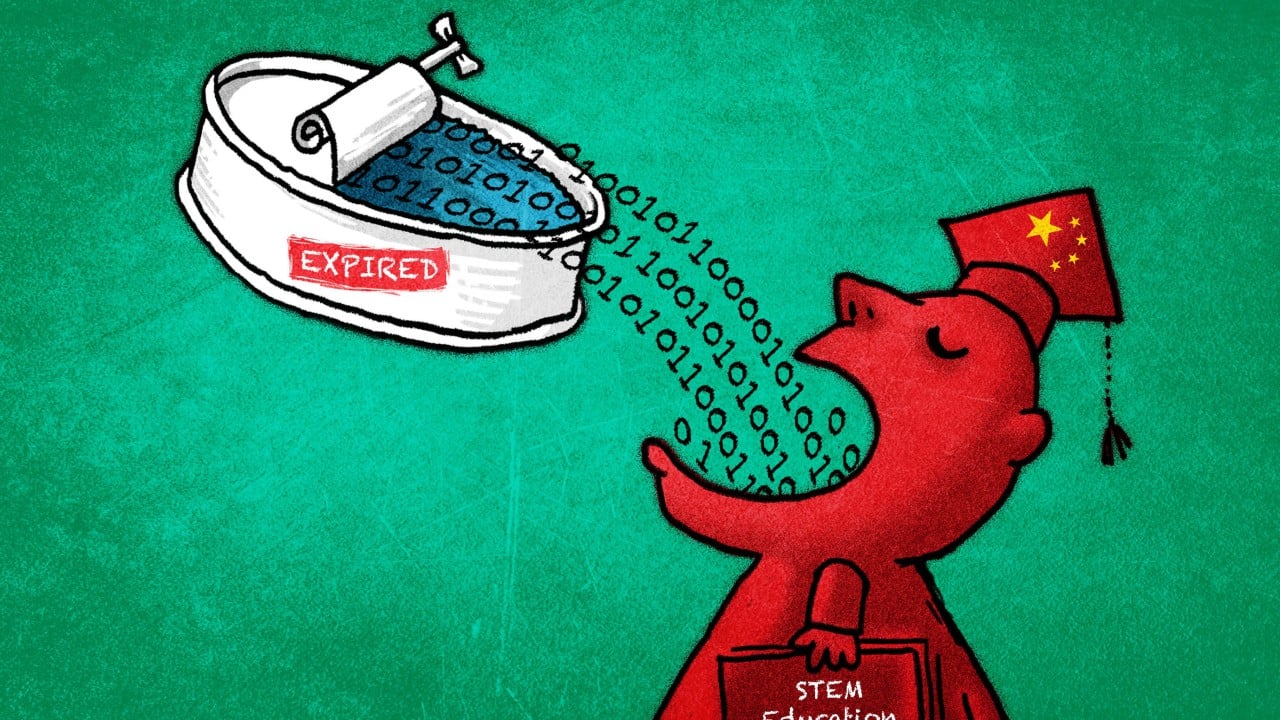At a conference in December, Wang Xingxing – the robotics guru who founded China’s industry-leading Unitree Robotics – had a sharp critique.
Advertisement
“China is at a disadvantage in terms of talent reserves because its education system has decided that knowledge learned in school is often outdated, whereas overseas students study the world’s most cutting-edge technologies,” he told the audience.
“The education system fundamentally shapes future development potential and opportunities,” Wang said, adding that for an intelligent individual entering university, studying frontier knowledge versus 20-year-old textbook materials created “a stark gap”.
Born in 1990 in Zhejiang province in eastern China, the tech entrepreneur did not study at one of the country’s most sought-after universities.
During his undergraduate and master’s studies at local universities in Zhejiang and Shanghai, he devoted his time and passion to building low-cost robots, launching his entrepreneurial career soon after graduation.
Advertisement
As the world enters an era often referred to as the “fourth industrial revolution”, in which advanced technology such as quantum computing, artificial intelligence (AI), 5G, new energy and virtual reality are driving socioeconomic change, Chinese educators and innovators fear the country’s science and engineering education is not doing enough to nurture more bright minds like Wang.
While China is challenging the Western dominance in many critical sectors and has become an increasingly appealing destination for international researchers, many have criticised China’s STEM (science, technology, engineering and mathematics) training, claiming it is obsolete and disconnected from industrial needs.

